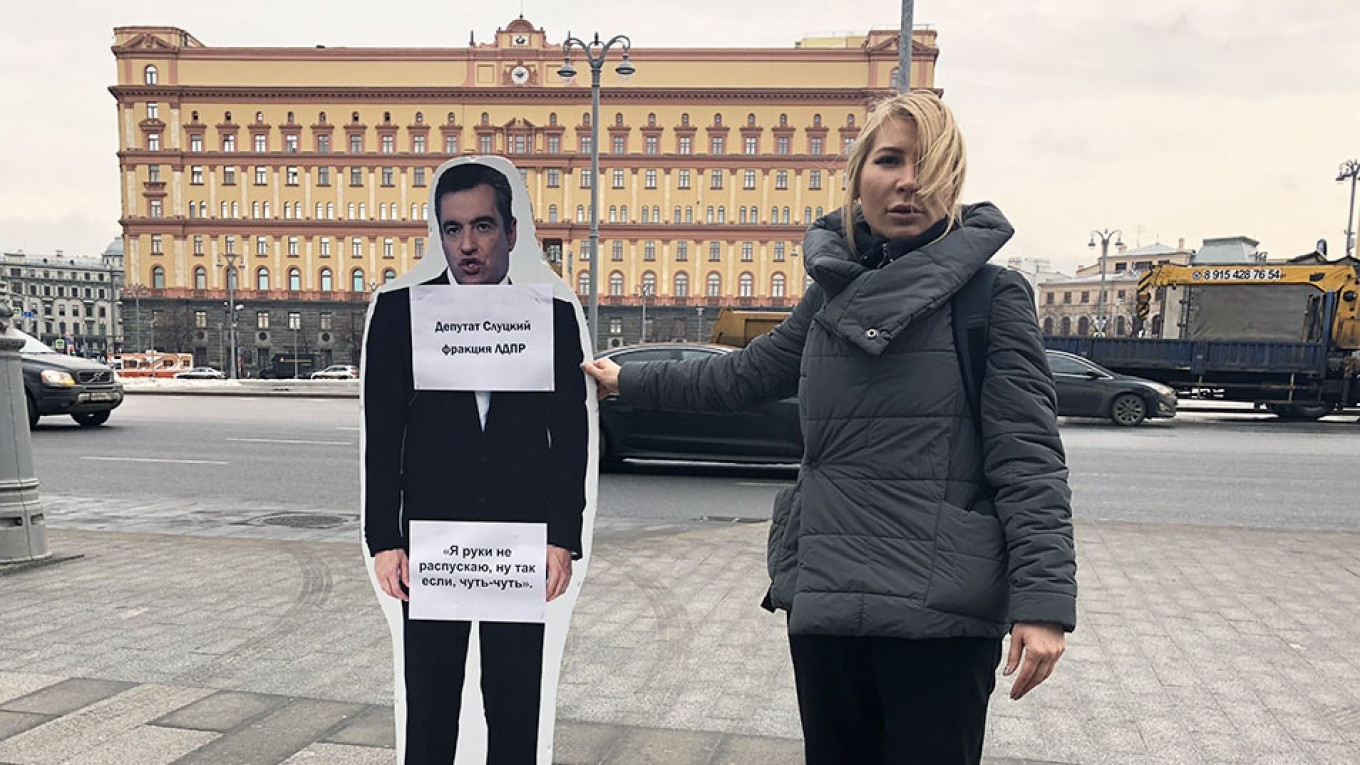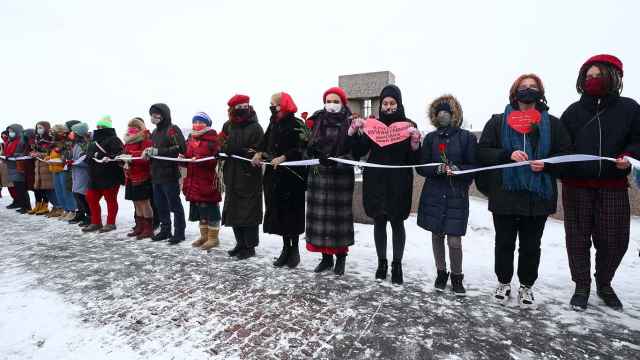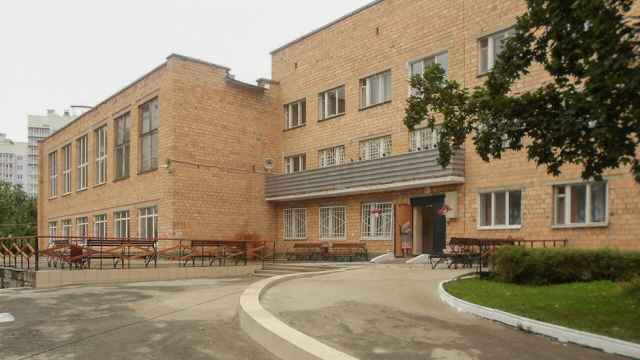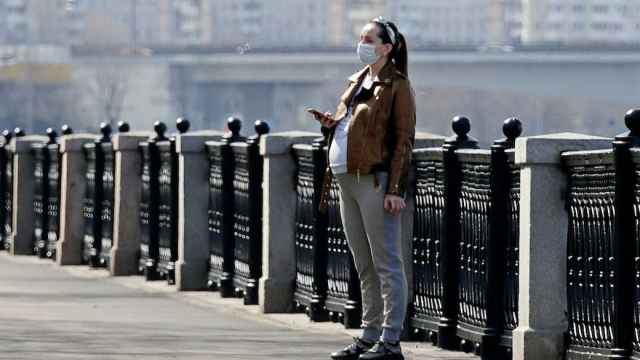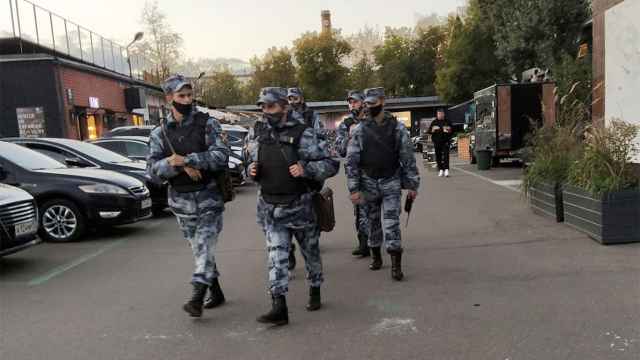Most people have a different way of thinking here and are not used to sharing stories like this,” Daria Zhuk says from her flat in Moscow.
We need to keep talking about sexual harassment in Russia, and show people that it isn’t scary, but enormously important, to speak up,” she adds. “Only then can we really change the current situation.”
Zhuk is a producer and reporter at the opposition-leaning television network, Dozhd TV. She works, among other things, on the channel’s women’s program, “Women on Top,” where she hosts discussions on topics like sexual harassment, domestic violence and other problems women face in Russia and around the world.
She is also one of three women who went public with claims of sexual harassment against State Duma Deputy Leonid Slutsky in February. The allegations sparked an unprecedented public debate in Russia, drawing comparisons to the Harvey Weinstein scandal. And sexual harassment has dominated the news cycle this week after the chief editor of the Meduza news website resigned over claims of inappropriate behavior towards a colleague's wife at a party.
Yekaterina Kotrikadze, who is now deputy chief editor of RTVI television based in NewYork, was among Slutsky’s accusers earlier this year. Women in Russia do not typically speak out about harassment because they are afraid of backlash, she said.
“What my colleagues and I did was to try and change the society surrounding them, so that they are no longer afraid of behavior like Mr. Slutsky’s,” she says.
Six months after the allegations, however, the #MeToo movement — which has seen scores of men removed from top positions in the West— has yet to take off in Russia. At the same time, Russia’s political elite has denied there is a problem.
The Duma’s ethics commission cleared Slutsky’s name in March, and President Vladimir Putin has branded the #MeToo movement a “media conspiracy.” Meanwhile, the women who went public with their stories have faced harsh criticism — including from other women.
“[They] said nasty, terrible, embarrassing things,” says Kotrikadze. “They called me a liar, and questioned how I could remember what happened seven years ago.
“One Duma member claimed that she’s 300 times more beautiful than those of us who spoke out against Slutsky, so she could not understand why he would abuse us and not her.”
Although Zhuk says she had been inspired by the support she received from viewers, colleagues and even some politicians, lawmakers still reproach the journalists for going public.
“For the most part, the Duma deputies continue to blame us,” Zhuk says. “They either do not believe us or claim that we ourselves were responsible for Slutsky’s actions.”
The BBC’s Farida Rustamova, who also accused Slutsky of harassment, declined to comment for this article. Slutsky was also contacted for comment.
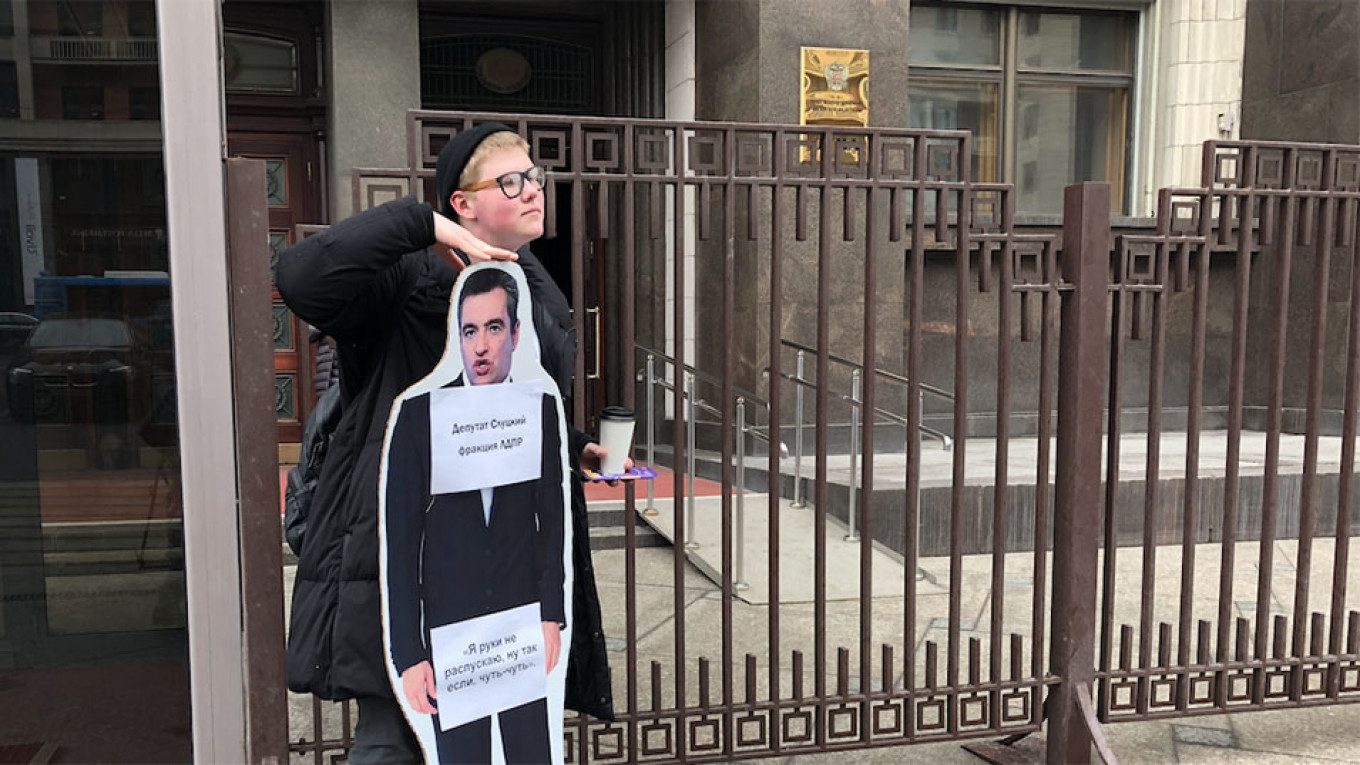
Back to normal?
Some 40 media outlets initially supported the journalists by boycotting the Duma and refusing coverage of Slutsky. But in recent months, that boycott has fallen by the wayside.
Zhuk’s channel Dozhd, for instance, has reinstated its Duma correspondent to report on “the most important events,” according to its chief editor Alexandra Perepelova.
“Dozhd has decided that it is vital to cover social issues discussed in the Duma, like pension reforms and changes to domestic violence laws, because our channel offers a different view on these problems,” she told The Moscow Times. “However, we still try to avoid Slutsky.”
She also insisted that the decision to report from the Duma again had not “taken the pressure off Mr. Slutsky,” who she said is “suffering ”the consequences of the boycott.
“I don’t think anything has fundamentally changed in how men like Slutsky think, but our boycott made them realize that they can’t get away with their behavior, especially since we can now talk about these topics more openly,” Perepelova added.
Kotrikadze echoes that sentiment, saying that “the fact of the boycott is much more important that its continuation.”
Women’s rights activist Alyona Popova, however, is less optimistic about Russia’s brief experiment with the #MeToo movement. In March she found herself in the back of a police van after protesting sexual harassment with a cardboard cutout of Slutsky at the Duma. Popova was later found guilty of having organized a mass event without permission and handed a fine of 20,000 rubles ($300).
Since then, the situation has “only got worse,” Popova says. “Everyone has seen how Slutsky has been defended by his political pals. He remains the head of the Duma committee on international affairs. He calmly meets foreign delegations and travels to various countries, where he is still very welcome.”
Most recently, Slutsky liaised with NATO Secretary-General Jens Stoltenberg at the United Nations General Assembly at the end of September. He also met with European Union foreign policy chief Federica Mogherini to discuss sanctions, which he himself has been subject to. In August, he met with U.S. Senator Rand Paul, who invited him to Washington with other Russian lawmakers.
If anything, Slutsky’s career has improved since the scandal — at least that’s how it looks to me,” Popova told The Moscow Times.
#MeToo needs more time
Despite the absence of reflection at the top, Kotrikazde believes that young Russians will gradually force a change in attitude towards sexual harassment.
“Here, human rights are not as important as they are in the United States or Europe, so of course the #MeToo movement will be different here, and it needs to be fought for,” she says.“
I received a wave of support from all over Russia. Women from Yekaterinburg wrote and thanked us for our courage, saying they wouldn’t do this in their city.
”Russia’s #MeToo movement just needs more time, she says. “This is just the beginning. Russia deserves better and Russian women deserve better.
“There are so many women silently suffering in Russia because of the behavior of men in their own homes, offices, schools and universities. The silent suffering will stop. Not now, but soon.”
A Message from The Moscow Times:
Dear readers,
We are facing unprecedented challenges. Russia's Prosecutor General's Office has designated The Moscow Times as an "undesirable" organization, criminalizing our work and putting our staff at risk of prosecution. This follows our earlier unjust labeling as a "foreign agent."
These actions are direct attempts to silence independent journalism in Russia. The authorities claim our work "discredits the decisions of the Russian leadership." We see things differently: we strive to provide accurate, unbiased reporting on Russia.
We, the journalists of The Moscow Times, refuse to be silenced. But to continue our work, we need your help.
Your support, no matter how small, makes a world of difference. If you can, please support us monthly starting from just $2. It's quick to set up, and every contribution makes a significant impact.
By supporting The Moscow Times, you're defending open, independent journalism in the face of repression. Thank you for standing with us.
Remind me later.


